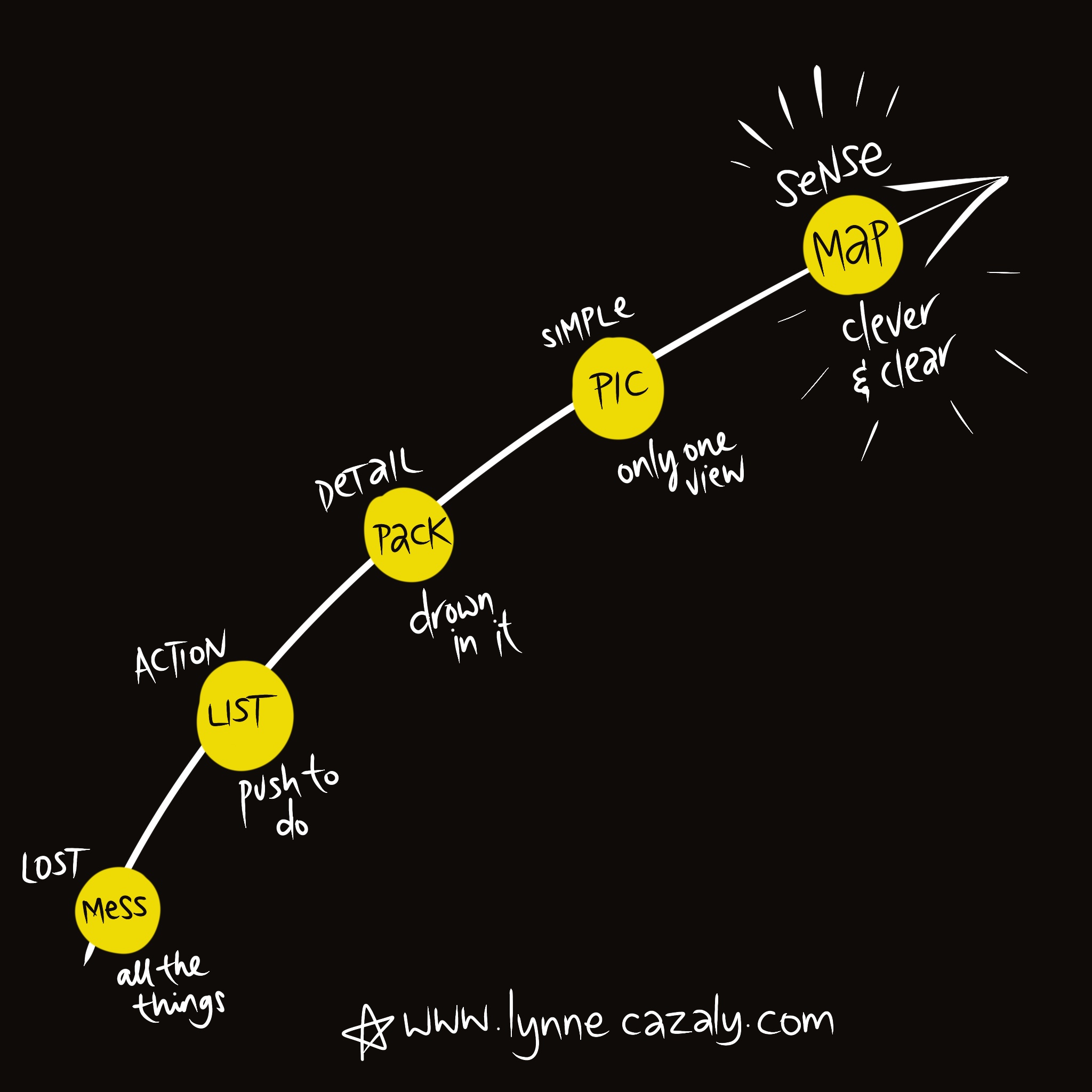People won't commit if they don't know where they're going
 Monday, February 10, 2020 at 4:34PM
Monday, February 10, 2020 at 4:34PM We need big trust to go with someone and not know where they’re going.
'Trust me, it’s a great restaurant.'
‘Believe me, you’ll love this holiday location.’
We may think people will just follow us or they're at fault because they don’t 'engage or buy-in'. How do we lead so people will change with us as we launch something, try something new or zig when everyone else is zagging?
To reduce anxiety and uncertainty and build trust and understanding use sensemaking. We have some of it in our nature (how we make sense of things) but we can learn more so we become insight seekers and rapid sense makers in this world of complexity and uncertainty.
Do this:
1️⃣ Create a map of what’s possible, what the potential is
2️⃣ Talk through that map, share it with others
Like this:
In my recent Sensemaking skills workshop, a participant created a map about change in the educational sector she works in. She shared and talked through the map with the team. A topic that used to create resistance now had understanding, intrigue and curiosity.
✅Ace!
What do you have to convey:
- Your own thinking and ideas?
- A new product or service?
- A plan or vision for the future?





















